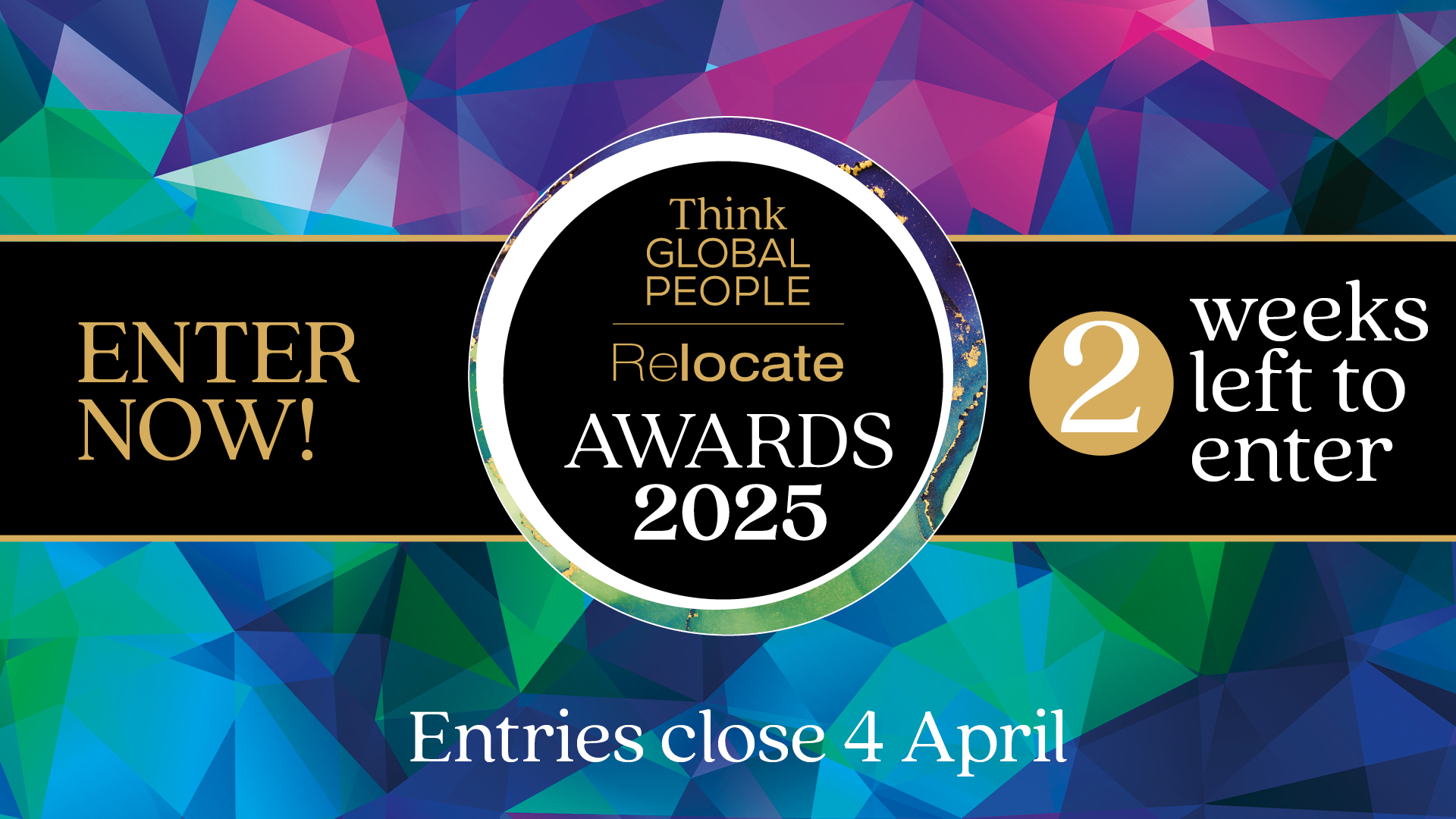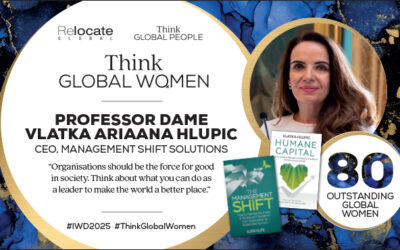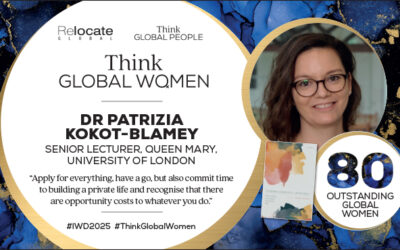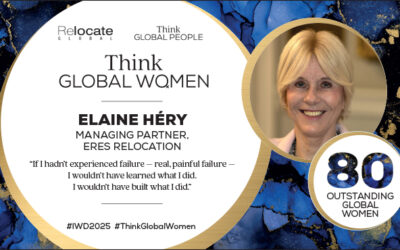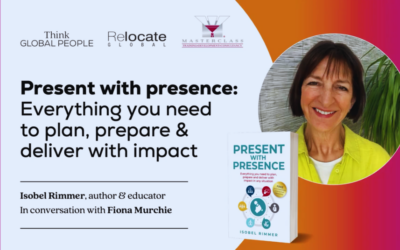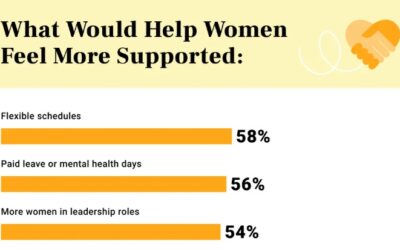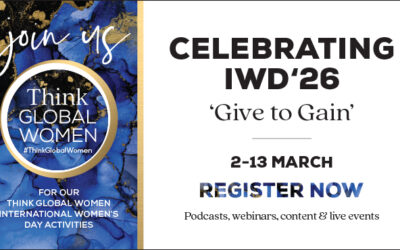Think Women
Dr Ama Onyerinma | 80 Outstanding Global Women 2025
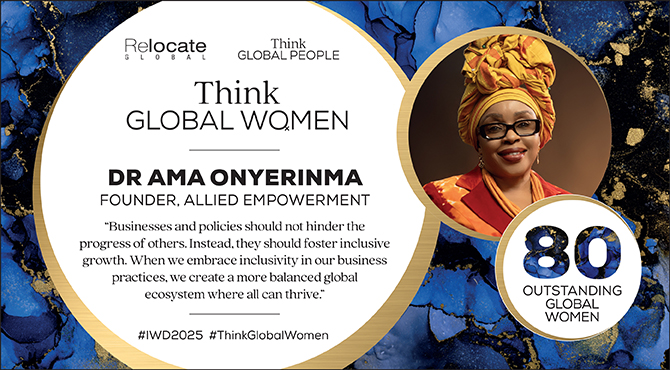
Dr Ama Onyerinma is a dynamic global leader and the founder of Allied Empowerment which provides a consultancy service for leadership and coaching for teams and individuals. and Live Abundantly!® a not-for-profit which focuses on education and employability, gender parity, social impact and justice to build socio-economic viability.
She is also a sustainability entrepreneur, thought leader, educationist, and co-founder and Vice-chair of Africa Sustainable Trade where she spearheads sustainable trade and innovation with a dedicated focus on economic sustainbility, social responsibility and environmental stewardship. She is the former and first female Chair of the British Business Group-Nigeria, where she advocated for equitable business practices and legacy.
“I consider myself a global citizen, shaped by my rich heritage and the ability to live, work, and experience multiple cultures across continents,” she says. “My journey began in Islington, London in the UK, but my early years saw us moving between Canada and, for a brief period, Nigeria. This diverse educational and cultural exposure—spanning the UK, Canada, Nigeria, and later the USA—has profoundly influenced my perspective. Today, my work takes me across these three continents, and at present, I am based in Nigeria.”
Dr Ama’s aims are to reshape the global sustainability narrative and champion viable exchanges of trade, investment, and development resources, aiming to create long-term economic and social impact. Her book, Successes Don’t Fail, delves into the complexities of human resilience and adaptability. It examines how individuals and organisations can navigate change effectively to remain relevant, visible and prosperous in a dynamic world.
“The greatest influences in my life have been my family—particularly my parents and the remarkable women I refer to as my “multitude of mothers,” she explains. “I was blessed with the guidance of extraordinary godmothers. One of them was the first and only female Surveyor General of Nigeria and the first female surveyor in Nigeria, Africa and the Commonwealth. Another is the second female Chief Justice of Lagos State, whilst the other, a school nurse, taught me the value of health, well-being and integrity.
“Witnessing their professional journeys was a gift. My own mother, who started as a nurse and became a successful entrepreneur, demonstrated fortitude, resilience and adaptability. And my father, whom I deeply respect, was a true male ally—raised by a strong woman, he ensured that my sisters and I had access to the best opportunities, empowering us to thrive and forge our own paths.”
Dr Ama credits her multicultural upbringing and exposure to different ways of thinking as a key driver for her decision to place diversity and inclusion at the heart of both her life and her work, and why sustainability is one of her key concepts and goals.
“I was raised by individuals who had a vision, who did not see limitations, and who thought outside the box,” she said. “I am really an amalgamation of all of this, plus the fact that I grew up across multiple continents, and that’s why I hold diversity and inclusion as pivotal for my life experience, but most importantly for my work around sustainability.
“My career began in anthropology—a fitting choice given my diverse background,” she says. “I later transitioned into education before immersing myself in sustainability over a decade ago. This shift was driven by my understanding that the core principles: people, the environment, the economy, and society are all interconnected.”
How sustainability can drive great business practices
About 10 years ago, Dr Ama left the corporate world and decided that she was going to concentrate on creating businesses that had sustainability at their heart.
“If we can find a way to be entrepreneurs, to be career driven, and also recognise that we are custodians of the environment and the innovative ideas that we come up with, then we can create and live sustainably,” she says.
“We need to appreciate the interconnectivity of all of these elements when we establish ourselves, whether in the business or career world, but also as global citizens and as citizens of the earth. We need to recognise that we are responsible, and we cannot compromise in the way that we make decisions, communicate, problem solve, and in the way that we collaborate.”
As a passionate advocate for sustainable economic and social advancement, Dr Ama actively promotes these principles within workplaces and communities. She aligns her mission with the ethos of ESG (Environmental, Social, and Governance) and the United Nations Sustainable Development Goals (SDGs), striving for ethical and equitable societal progress.
“Businesses and policies should not hinder the progress of others,” she explains. “Instead, they should foster inclusive growth. Recognising and respecting diversity ensures that economic and social advancements are equitable and sustainable for all, particularly women and youth. When we embrace inclusivity in our business practices, we create a more balanced global ecosystem where all can thrive.”
Her book, Successes Don’t Fail, stems from her personal experiences with resilience and change. She endured an annus horribilis—a harrowing two-and-a-half-year period marked by health struggles, her father’s passing, and the loss of several loved ones, including her best friend and goddaughter.
“Through this, I reaffirmed a belief instilled in me since childhood: failure is not the end but a catalyst for growth,” she says. “Like the lotus flower that emerges from murky waters, adversity can give rise to something beautiful. Life is unpredictable, yet fortitude and resilience allow us to navigate its uncertainties.”
She explains that as an entrepreneur, the journey is rarely smooth. Challenges arise, but they also present opportunities for innovation. Change is constant, and it is through change that we find better ways to operate, create, and connect. By surrounding yourself with the right ecosystem—mentors, sponsors, and a supportive network, you can embrace change and keep moving forward.
“When you are an entrepreneur, if you build the right ecosystems and board of directors, if you have the right network and have mentors and sponsors, then they can be there to help you navigate change,” she says. “In business, change is a constant and allows us to be innovative. It is change that allows us to understand that there is a better way of doing things.”
As a passionate advocate for sustainable economic and social advancement, Dr Ama actively promotes these principles within workplaces and communities. She aligns her mission with the ethos of ESG (Environmental, Social, and Governance) and the United Nations Sustainable Development Goals (SDGs), striving for ethical and equitable societal progress.
“Businesses and policies should not hinder the progress of others,” she explains. “Instead, they should foster inclusive growth. Recognising and respecting diversity ensures that economic and social advancements are equitable and sustainable for all, particularly women and youth. When we embrace inclusivity in our business practices, we create a more balanced global ecosystem where all can thrive.”
Her book, Successes Don’t Fail, stems from her personal experiences with resilience and change. She endured an annus horribilis—a harrowing two-and-a-half-year period marked by health struggles, her father’s passing, and the loss of several loved ones, including her best friend and goddaughter.
“Through this, I reaffirmed a belief instilled in me since childhood: failure is not the end but a catalyst for growth,” she says. “Like the lotus flower that emerges from murky waters, adversity can give rise to something beautiful. Life is unpredictable, yet fortitude and resilience allow us to navigate its uncertainties.”
She explains that as an entrepreneur, the journey is rarely smooth. Challenges arise, but they also present opportunities for innovation. Change is constant, and it is through change that we find better ways to operate, create, and connect. By surrounding yourself with the right ecosystem—mentors, sponsors, and a supportive network, you can embrace change and keep moving forward.
“When you are an entrepreneur, if you build the right ecosystems and board of directors, if you have the right network and have mentors and sponsors, then they can be there to help you navigate change,” she says. “In business, change is a constant and allows us to be innovative. It is change that allows us to understand that there is a better way of doing things.”
A truly international career
Today Dr Ama works across multiple continents. While her businesses are registered in the UK and the USA, her current work is centred in Africa, where she has played a key role in helping to develop sustaining business and trading practices.
It was her brother who encouraged her to explore this path. In 2011 he called her from Nigeria, explaining the opportunities she was looking for, the change she wanted to drive, and the people she wished to serve were all in Nigeria.
“Six months later, I visited for the first time in nearly 40 years. His intuition was right—I have never looked back. Upon arriving, I had two goals: to establish a business and to launch an NGO. Surprisingly, the NGO took off faster than the business. The pressing social issues affecting women—harassment, biases, gender-based violence, and unequal access to education and funding —demanded my attention. While I still engage in leadership development and coaching, my primary focus has shifted toward addressing systemic business and social inequalities and driving impactful change.”
This passion for education also led her to the role at Charterhouse, Nigeria’s first British independent school. Her involvement was initially motivated by a desire to support this ground-breaking initiative to help the school to flourish, but she quickly recognised a deeper connection between education and the broader themes of diversity and inclusion. She sits on the Charterhouse Lagos Advisory Board and while many of the families at Charterhouse differ from the ones she works with through her NGO, the fundamental goal remains the same: making quality education accessible.
“I come from a highly educated family, so my interest in Charterhouse was originally born out of wanting to support the first British Independent School in Nigeria,” she says. “I was absolutely honoured when they invited me to join their advisory board.
“I also firmly believe that the key to embedding diversity, equity, and inclusion (DEI) into society starts in schools,” she says. “While corporate programs promote DEI in the workplace, true inclusivity begins in childhood—through diverse curricula, inclusive teaching methods, and multicultural perspectives. Even in a society that may appear homogeneous on the surface, underlying ethnic and social differences exist. By fostering inclusivity in education, we prepare future leaders to embrace diversity naturally, shaping workplaces and businesses where equity is not just an initiative but an inherent value.”
Her journey—both personal and professional—has been driven by a commitment to build that diversity and sustainability. Whether through business, education, or advocacy, she works to build a future where inclusivity, resilience, visibility and responsible leadership are not just ideals but put into practice.
“If we can be more inclusive in terms of the subject matter that we are teaching and in embracing diversity, then we can create better workspaces and businesses,” she says. “People want to work in a psychologically safe environment, and that in turn helps build stronger teams and promote better productivity.”
Making impactful change across different continents
While Dr Ama is currently working in Nigeria, her businesses remain deeply rooted in the UK and the US. For example, Africa Sustainable Trade is a UK-based business, but its work is centred on the African continent. Similarly, Allied Empowerment is US-based, yet it operates both in the US and Nigeria.
“One of the critical sectors I have identified for transformation is energy,” she says. “Energy remains a significant challenge across Africa, particularly Nigeria. Identifying and harnessing sustainable energy sources is key to levelling the playing field—especially for women—by improving access to education, financial resources, and healthcare. To drive these projects forward, I need to be physically present in Nigeria, forging partnerships and building networks that align with this vision. Without being on the ground, it would be impossible to establish meaningful connections or pilot these initiatives effectively.”
As the first female Chair of the British Business Group Nigeria, her experience was eye-opening. Leading an organisation with a 50-year history and a male-dominated culture came with its challenges. There were preconceived notions about women in leadership and biases suggesting that women might be distracted by family responsibilities or social engagements.
“Overcoming these biases required me to establish credibility as an entrepreneur and leader, foster strong relationships, promote inclusivity, and leverage opportunities for the organisation. Despite these challenges, I thoroughly enjoyed my tenure and hope the organisation continues to embrace female leadership,” she says.
What are the keys to female leadership and empowerment?
Networking, stakeholder engagement, and ally-building have been crucial to her success, and Dr Ama believes young women should start developing these skills early, beginning with mentorship programs in schools. In universities and professional settings, women should join relevant organisations and forums in order to build meaningful connections.
“Trust and communication are critical in networking, as is having a strong sense of identity,” she says. “Confidence stems from knowing that you belong in any space you enter, and this mindset helps in breaking barriers.”
Several principles guide her leadership style. Integrity is paramount, followed by team building, humility, adaptability, accountability and communication.
“As a leader, I feel that it is important to openly acknowledge my strengths and weaknesses, encouraging inclusivity and collaboration. For instance, I am neurodivergent, specifically dyslexic, so I approach work with an understanding that delegation and teamwork are crucial. Rather than fixating on perfection, I focus on efficiency and progress.”
As she balances her various roles as an entrepreneur, educationist, and consultant, she says she is always learning and evolving.
““Intergenerational workspaces are essential to me because I value learning from younger generations while also sharing my wealth of knowledge with them,” she explains. My upbringing in an entrepreneurial household taught me that we can have multiple careers in life, and I embrace that. My primary passion lies in people, opportunities, and development—ensuring that growth and prosperity extend beyond myself to create lasting impact.”
Dr Ama aspires to leave a legacy for young people and women to believe that anything is possible with a clear vision, the right team, and unwavering perseverance. Her advice for all of us is to create your own personal “board of directors”—a support system of mentors, sponsors, and allies, because this can make a significant difference in achieving success, as well as helping you through more difficult times.
“For aspiring entrepreneurs, especially those passionate about sustainability, women and youth advancement, and social impact, my advice is to be intentional about your goals,” she says. “Having a vision, building up your own resilience, and creating your own community of supporters and like-minded people is key. Don’t be afraid of failure – it is a learning experience. Cultivate relationships, because opportunities often come through connections, and keep an open mind around new relationships and sponsorships. You never know who might advocate for you in rooms you haven’t entered yet.”
Dr Ama has her own podcast, Thinking Reimagined with Dr. Ama, which she started during COVID to foster intergenerational conversations on business, career, social issues, and well-being. She is eager to invite individuals from different fields to share their perspectives.
“Advancing women in leadership, business, and entrepreneurship is one of my core missions, and I believe that through shared conversations and collaborations, we can drive meaningful change,” she says.


